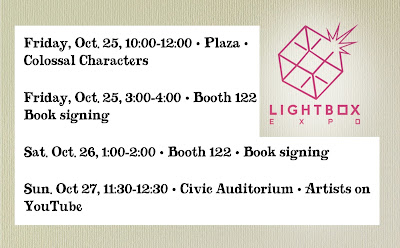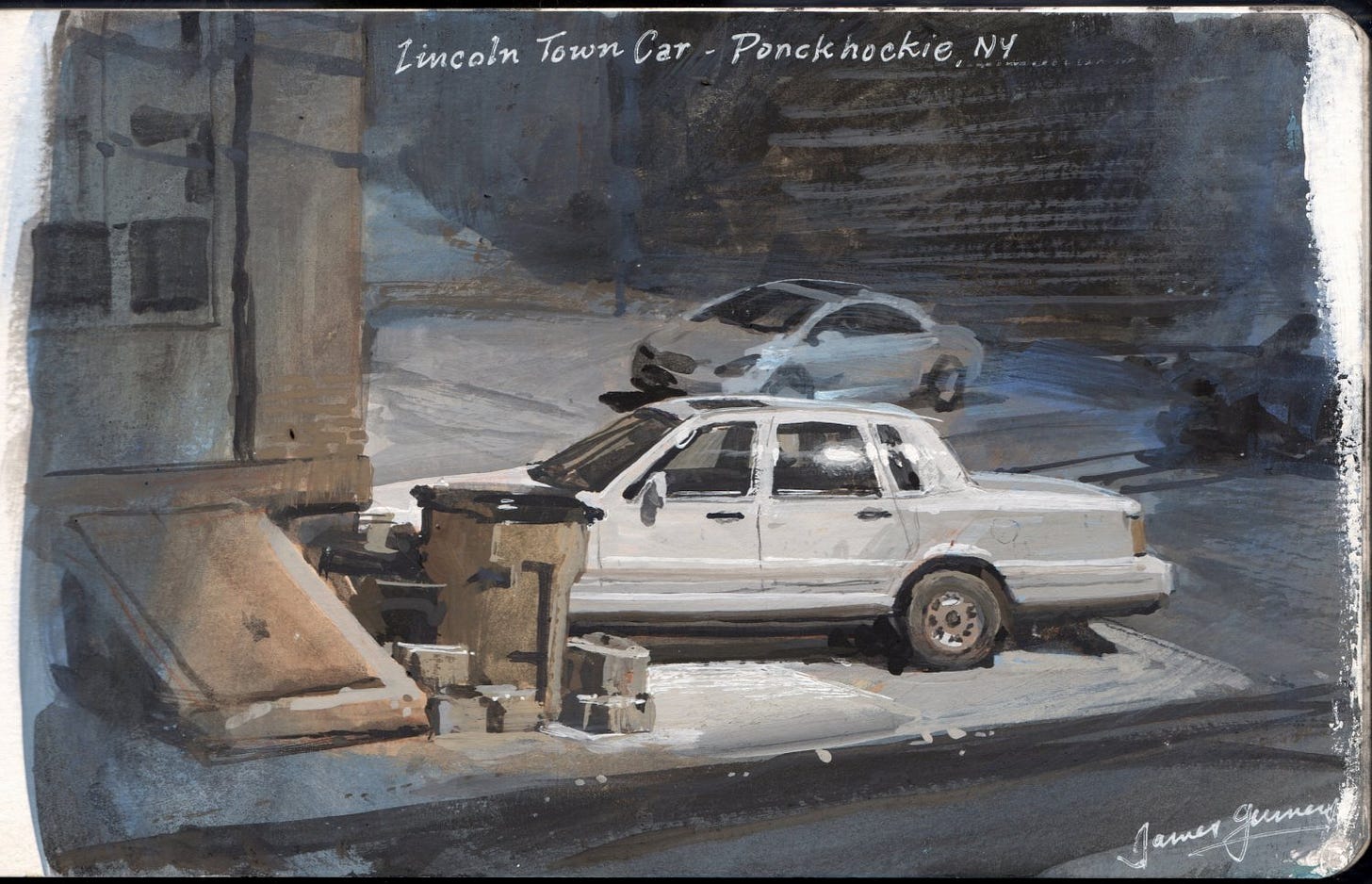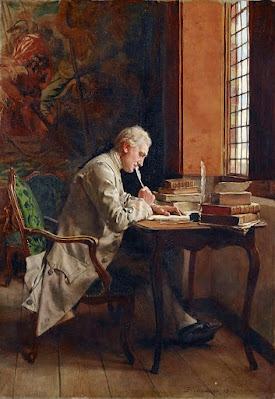Saturday, December 21, 2024
Chasing a Glitter Path
Sunday, December 15, 2024
Two Art Podcasts
Saturday, December 14, 2024
A Brain Circuit that Detects Faces
A brain circuit in primates that rapidly detects faces has been discovered.
This circuit, involving the superior colliculus, explains how we quickly spot and focus on faces, which could be relevant for portrait artists, character designers, or anyone who draws or paints people.
The superior colliculus has also been found to play a crucial role in distinguishing objects from their backgrounds. PsyPost says:
"Researchers demonstrated that when the superior colliculus was deactivated, the mice had difficulty identifying objects against various backgrounds. This indicates that the superior colliculus is involved in a parallel pathway for visual processing, highlighting its significance in the brain’s overall visual system."
It's all a reminder to us artists that the viewer's attention is primed for seeing faces in whatever image we create. The ability to recognize, orient to, and identify people by their faces is built into our brain structures.
So if you put a little more time into getting that face exactly right, your time is well spent.
Monday, December 2, 2024
Matěják's Three Favorite Art Books
Thanks to YouTuber Jan Matěják for featuring my book Color and Light: A Guide for the Realist Painter in your shortlisted recommendations.
He says: "This one is hands-down the most valuable in my entire collection."
Problem Solving for Oil Painters by Gregg Kreutz
The Art of Still Life by Todd Casey
Saturday, November 30, 2024
Tiny Triads
Here are two gouache plein air sketches painted with tiny triads.
Left: titanium white, yellow ochre, burnt sienna, and Prussian blue.Sunday, November 24, 2024
Monday, November 18, 2024
Tuesday, November 5, 2024
Book Signing This Thursday in Rhinebeck
I’ll be doing a book signing this Thursday, Nov. 7 at 6:00 at Oblong Books in Rhinebeck, New York.
I expect to be signing: DINOTOPIA• COLOR AND LIGHT • IMAGINATIVE REALISM • LIFE LESSONS FROM DINOSAURS, plus we’ve got a preview copy that you can see of THE ARTIST’S GUIDE TO SKETCHING.
I’ll bring along a couple original paintings and do a brief talk and Q&A. Hope to see you there!
Monday, October 28, 2024
Lines and the Brain
Sunday, October 20, 2024
Lightbox Schedule
Here are my events for Lightbox Expo in Pasadena a week from now. The rest of the time I'll be wandering around. I look forward to meeting you there.
Friday, October 11, 2024
Colossal Characters in Two Weeks
Thomas Fluharty @thomasfluharty
Jess Karpishin @jess.karp
Karla Ortiz @kortizart
John Burton @johnburtonart
Kiptoe @kiptoe1
Angela Sung @angothemango
Sean Bodley @seanbodley
Jeff Hong @chromacorg
Amanda Grose @myworldinillustration
Qianjian Ma @q_sketches
Kate Rado @katerado
James Gurney @jamesgurneyart
Monday, October 7, 2024
Painting a Film-Noir Streetscape
Welcome Visitors and New Subscribers.
Link to YouTube short video. This Lincoln Town Car looks mysterious to me, like it’s waiting to pick someone up for some weird errand.
I want to paint it faithfully, but change the lighting to make it look like a moody and mysterious street scene that evokes the mood of film noir. More about this strategy at my Substack.
Friday, October 4, 2024
Penovác's Cats
He uses a wet-in-wet technique, which involves applying wet paint to a pre-wetted surface. This approach allows the pigments to blend and spread organically, creating soft, ethereal effects.
More about how he paints these cats on my Substack post
Tuesday, September 24, 2024
Which Sticker Idea Is Best?
Wednesday, September 18, 2024
Deeply Ingrained Concepts
For example, here are some concepts:
1. That thinking takes place in the brain.
But scientists are helping us to understand embodied cognition, which suggests that thinking is distributed throughout the body and shaped by our sensory experiences.
2. That consciousness only happens with complex nervous systems
But modern botanical science and studies of colonial insects suggests that emergent behaviors and structures appear beyond our current understanding of information processing.
3. That the mind and the body are separate.
But this Cartesian dualism has been challenged by various philosophical and scientific perspectives, including monism, which posits that the mind and body are intertwined and inseparable.
4. That we act on the basis of free will.
But many philosophers argue that free will is an illusion, and that our choices are influenced by factors like genetics, environment, past experiences, and even gut bacteria which shape our brain activity and behavior.
5. That we perceive the totality of the world around us.
But we’re only aware of a thin slice of the electromagnetic spectrum, and many animals and plants can sense things we’re blind to, such as ultraviolet light, magnetic fields, or vibrations in the air.
6. That time is linear and absolute.
But modern physics has shown that time is relative, flexible, and dependent on the observer's frame of reference. Some cultures also perceive time as cyclical or fluid.
Read the rest for free on Substack Art: "A Poet" by Ernest Meissonier























